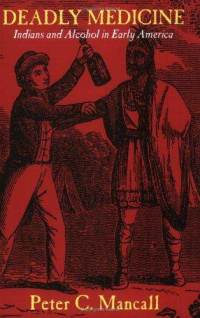 It is a scene that is all too familiar: an Indian being plied with whiskey. The results were predictable. A drunken Indian soon forgot his duty to hunt and otherwise provide for his tribe. Instead of keeping himself strong and ready to defend his village, he turned his violence inward on his own. The drunken Indian becomes indolent. Some of our Mashpee ancestors saw this and acted.
It is a scene that is all too familiar: an Indian being plied with whiskey. The results were predictable. A drunken Indian soon forgot his duty to hunt and otherwise provide for his tribe. Instead of keeping himself strong and ready to defend his village, he turned his violence inward on his own. The drunken Indian becomes indolent. Some of our Mashpee ancestors saw this and acted.
These ancestors, nearly 200 years ago, got involved in the Temperance movement. Clear heads made sound decisions. Men and women of vision knew that they could survive the world as it had become by being sober, industrious, and skeptical of the intentions of outsiders. We owe them a debt of gratitude because they secured our survival as a tribe. Some families and individuals rose to prominence, and in spite of the adverse conditions of those days, became relatively well-to-do. Just look at some of the old houses around town built by our people, some still in our hands.
I am often compelled to wonder—what is the future of our Tribe, economically speaking? Are we being led by men and women of vision, or are we being led over a cliff by people whose tunnel vision can only see the the tempting mirage of their own economic gain and political power? Forgive me if I am a skeptic in these matters. We have not been given any evidence to be otherwise.
Whiskey is not the powerful tool that it once was, but I think that some of ours have been imbibing the Jonestown Koolaid. ( Or is it Dorchester Koolaid?) The old time Indian sold off his beaver pelts for a jug of whiskey, with the full knowledge that in mere minutes that he would be roaring drunk, while some of our people are selling off their future and their children’s future for the promise of what, a job that does not (or may never) exist, or a restaurant or other business in a casino that may never exist? What is our fallback, our Plan B?
I have an idea. Let us be sober in these matters, let us be industrious, and most of all, let us not trust those who have no reason to be concerned for our future and our common welfare. We can be the second wave. We can create an environment of progress. We can be respected. We need not put all our hopes in a casino. If it comes, then all the better, but let us have plan B in place.
Or maybe it should be our plan A, and let the casino be the plan B.


